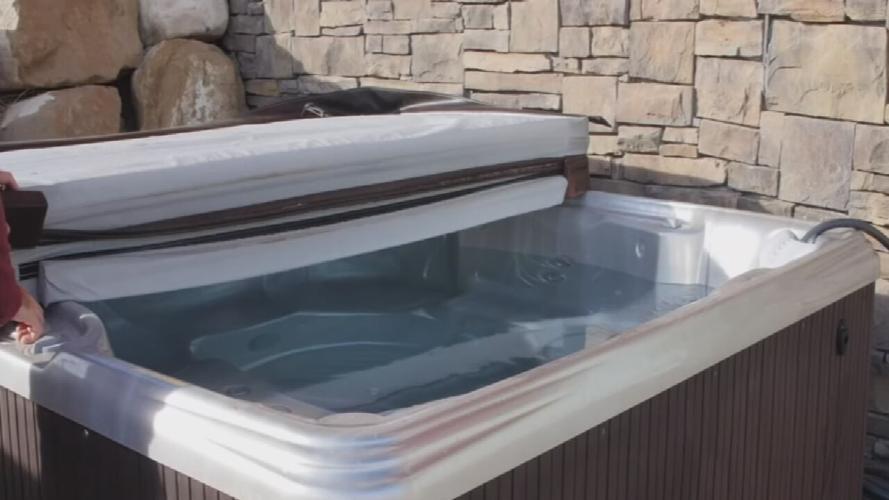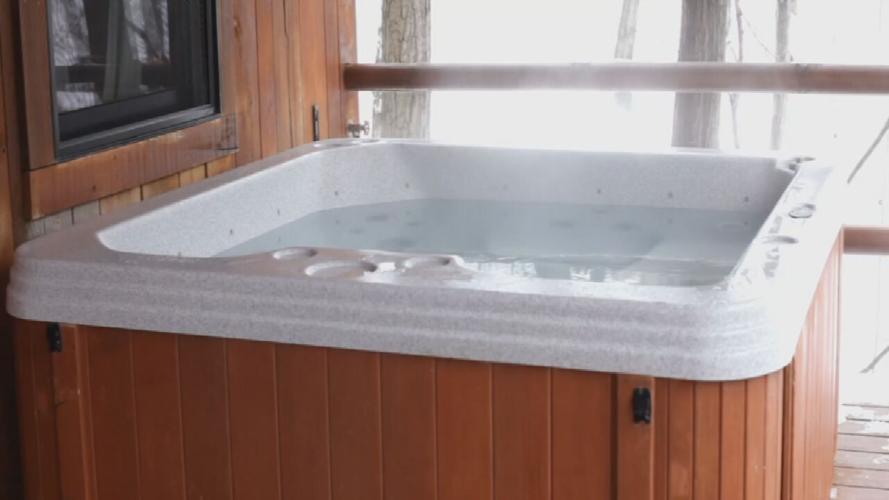LOUISVILLE, Ky. (WDRB) -- People who use a hot tub on their next vacation might be at a greater risk for a serious strain of pneumonia called Legionnaire's Disease.
The CDC reports one in seven patients who get the infection say they were recently traveling and half of those people report they stayed at a vacation rental property and used the hot tub.
One in 10 people who contract Legionnaire's Disease die from it, according to the CDC.
It is contracted when people breathe in Legionella bacteria in small water droplets or mist, like the mist you experience when in a hot tub.
Other places the bacteria is known to grow is in faucets, showerheads and even decorative fountains.
The easiest fix to stop the bacteria from growing is keeping up with recommended disinfection guidelines.
Legionnaire's disease is likely popping up specifically at vacation rental properties because they don't have the same cleaning regulations compared to hotels or public pools.
For example, Louisville Metro Department of Public Health and Wellness checks chlorine levels of all publicly accessible pools and hot tubs each week.
"We are out checking to make sure they have proper chlorine or bromine disinfection every time we are there. That is the number one step in preventing Legionella," Ciara Warren, Environmental Health Manager with the Health Department said.
All public hot tubs in Louisville are also required to be drained once a week.
"That is a very crucial step in preventing stagnated water, bacteria growth in the water, and make making sure that they have proper disinfection levels all the time, even when it's not open," Warren said.
She said if you're worried about using a hot tub on your next trip, an easy fix for vacationers is to buy a chlorine test kit to bring with you.
As for how to know if you have Legionnaire's Disease, symptoms can include difficulty breathing, cough, often with phlegm, and a fever.
Dr. Daniel Blatt, infectious disease physician with Norton Children's Hospital, said it can be hard to identify between the various strains of pneumonia, like Legionnaire's Disease. But the best practice is to try and tell your doctor all last known exposures and any irregularities in your schedule, like traveling.
"For example, if you are around people who have a known illness, that is important information because you may have the same illness. Or if you have an unusual exposure, such as being around animals, or travel history, or certain water sources, that's important information to help the doctors figure out what the cause of your illness may be," Blatt said.
As a bacterial lung infection, Legionnaire's Disease can be treated with antibiotics.
"I think it's really important to keep things in perspective. Sometimes I don't think it's a good idea for everyone to panic about Legionella," Blatt said. "It's not a widespread disease, but it's just a good reminder that there's a lot of diseases out there that can make people sick."
The disease is typically only severe, or deadly, for those with pre-existing conditions, especially respiratory issues.
"It doesn't mean that every cough is going to be Legionella. But what the CDC's goal is for that is to keep people safe," Blatt said about the CDC's alert on its social media. "And how do you keep safe from Legionella? If you have a hot tub, you clean it really well with whatever the sanitation practices are for that hot tub."
The CDC posted disinfection guidance for vacation rental property owners.
The city also keeps a database to see the most recent pool inspections for hotels, apartments and businesses in the city. You can also make a complaint if you believe a pool is out of compliance.
Copyright 2025 WDRB Media. All Rights Reserved.





